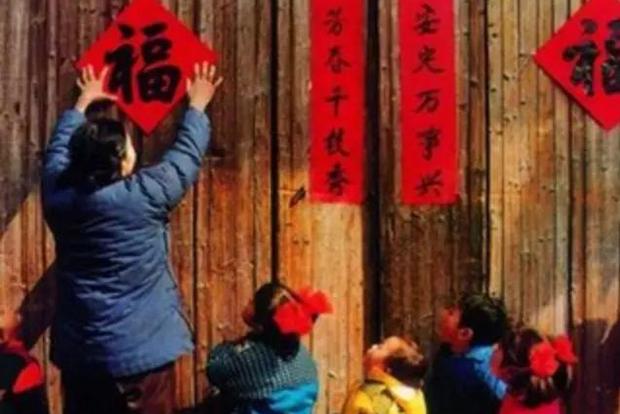We are satisfied with the link between original Chinese culture and Hebrew civilization. Our ancient sages had a lot of universal revelation from God. It was undeniable that this perception was gradually weakened over time. The history of Chinese feudal society is a proof.
In the end, the traditional Chinese culture didn't give God the right place. The Chinese traditional culture has a style of Satan. We worship kitchen-god, door-god and the god of fortune. We Chinese also worship an animal created by our imagination, the only animal not actually existing among Chinese Zodiac. The image of the dragon is like a snake. The Bible describes dragon as follows: "He caught the dragon, which was the ancient serpent. We also called it devil or Satan. We were aimed to bound it for a thousand years."
The snake, dragon and Satan represent the same concept in the Garden of Eden. Satan appears in the image of a serpent and tempts the ancestor of mankind. Why did our ancestors imagine a snake-like animal - the dragon and worship it?
In Chinese legends, Nv Wa and Fu Xi are the ancestors of humankind. They are half-human and half-snake. Chinese openly proclaimed that they are descendants of the half-human and half-serpent monsters. The proclamation makes us think of Satan, who tempted human ancestors in the Garden of Eden with the image of a snake.It was a legend deriving from the ancient times. When we refer to the Bible, we can find that the legend was not groundless.
After many generations, the image of half-human and half-snake gradually evolved into a dragon. It is commonly said that long time ago a tribe with snake as its totem constantly defeated and integrated other tribes. At last parts of other tribes' totems such as deer's horns and shrimp's mouth were added to the image of the snake. It became the origin of dragon's image. So dragon also represents the integration of the Chinese primitive tribes and the great unity of the nation. The humankind was created by God and has the image of God. However, the Chinese were seduced by Satan and deviated from the world of God. They worshiped the creatures made by God instead of God himself. It is similar to evolutionism, which takes monkeys as human's ancestors.
In 1922, a man named John Braham wrote a book named Orientalism. He wrote so in the book: "Have you ever thought about the example of China? There are millions of clever people in China. However, they have no direction and no driving force. All their efforts end up with nothing. The whole world just ridiculed them. More than 20 years ago, a friend studied in Sweden. He said to me that foreigners look down on Chinese people because they have no faith. At that time he didn't believe in God. He thought we were looked down on because we were poor. However, poverty is not the root cause nowadays. China has become the world's second-largest economy. Chinese are still teased due to bad behavior in foreign countries.
However, God always cares about the nation and gives Chinese extraordinary wisdom. Chinese created Chinese characters, the world famous four inventions, the wonderful Tang poetry, ceramic, Chinese paintings, calligraphy and other valuable cultural heritage.
The famous Chinese scholar Yu Qiuyu has a profound study of Chinese culture. He visited several major birthplaces of ancient civilization in the world. He felt the decline of other ancient civilizations was such a pity. By contrast, Chinese civilization has extraordinary strength. I have never been to the Middle East. However, after I read his essays, I seemed to find that Bible's predicts of Egypt, Babylon and other ancient countries are true. I was more convinced that the power of God is great.
However, Yu Qiuyu did not find out what strength has kept the Chinese civilization alive after thousands of years?
As the children of God, we know that the history of mankind and the fate of every nation are in the hand of God. God maintained the long history of Chinese culture. China has thousands of years of civilization and more than a billion people. Its booming economic development has also attracted attention from the whole world. I don't believe it is just coincidence. I thought of Paul's words: "Where the sin is, where the grace is." (Romans 5:20) God's love and grace are just among us. God loves China. He also hopes for the prosperity of the gospel in China.
In recent years, the calling of reviving traditional Chinese culture and resisting Christmas is getting higher and higher. Some people against Christianity even tear down crosses in the Chinese church and hinders the building of churches.
Philosopher Feng Youlan mentioned the attitude of Chinese towards foreign culture in the book "History of Chinese Philosophy". He said: "The Chinese are successors of the ancient civilization. They were far apart from any other ancient countries. It was difficult for them to understand people of different lifestyle. They think they must be rude and ignorant. Whenever they contact with different cultures, they tend to contempt and reject it.Chinese think those cultures different from theirs doom to be inferior and wrong. "
When it comes to the revival of Chinese culture, the famous scholar Zhou Youguang said: " The role of traditional culture is to aid the modern culture instead of replacing it. He also said that only when different cultures play their advantages together can human culture continue to move forward."
Those people who struggle to resist Christian culture in the name of reviving the traditional culture are actually afraid of the rapid development of Christianity in China. As Christians, we know that the gospel shall be spread throughout the world and be witnessed in all nations. At that time the end of the world will come and we will all be saved.
We have reason to believe that the era of integration and collision between Christian culture and the traditional Chinese culture has come. In the past two thousand years Christianity has imposed a comprehensive and profound influence on Western civilization and changed the course of world history. Nowadays it is going to start a new transformation in this ancient oriental country.
Translated by Emma Ma












